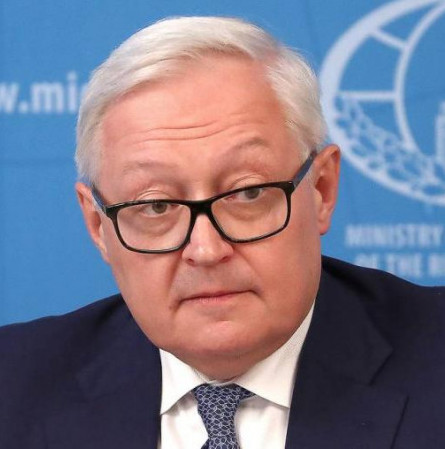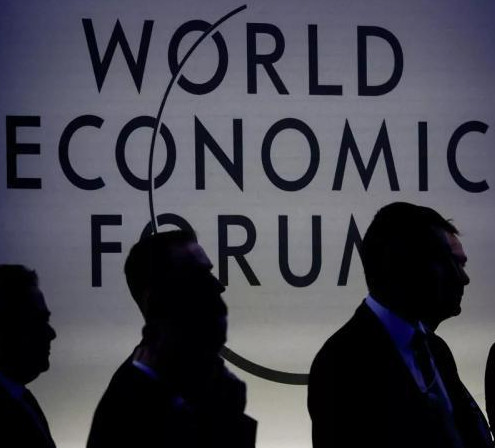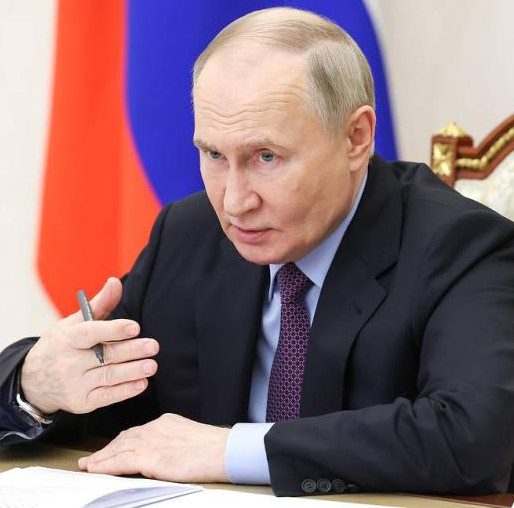Economy
The Arctic Titbit: to Argue or Cooperate?
The attention to the Arctic is unprecedented this century
Yuri Golubchikov, geographer, ecologist

The Arctic has made an incredible career in this century in the eyes of humanity - the attention to it is unprecedented. And if formerly the attitude to its "white silence" had a romantic tinge, then today a purely pragmatic view is demonstrated. The Arctic continental shelves being rich with mineral resources because of global warming are becoming available for development. Russia, the USA, Canada, Denmark and Norway pretend to a right to consider the Arctic resources to be theirs. The territories of other three countries - Iceland, Sweden and Finland – are in part situated above the Arctic Circle and are considered subarctic, but they have no access to the North Pole.
There is incredibly much noise around the Arctic. By the end of 2014 the UN will have received competing claims to various parts of the Arctic from Canada, Denmark and Russia. The countries, using soil samples taken from the Arctic seabed, will argue that the oil-rich regions are an extension of their continental shelf. There is also an idea that the Arctic is an area belonging to the whole Earth, not to individual countries. Say, let's exploit it all together. The idea deserves attention.
The literally tsunami-like surge of interest in the Arctic was special last year. In the past half century, this region of the planet has never occupied such a prominent place in Russian and world mass media. It is not surprising. It was finally clarified that the Arctic ice shelf contains a quarter of global undeveloped oil and gas reserves - more than 400 billion barrels. The aspirant countries have realized a special importance of the shelf zone during the update of the energy agenda, and ... rushed to "stake out claims", and put their national flags.
Russia, of course, was one of the first to plant its titanium flag at the bottom of the shelf. By its northern boundary of many thousands kilometers it adjoins the Arctic Ocean, and how much effort of various generations has been put into knowledge, development and coexistence with this severe "neighbor" around the globe.
But Russia's "passage with the flag" provoked fierce criticism and strong reaction from nearest neighbors, "completely unjustified" one, according to Russian Prime Minister Vladimir Putin. "No one prevented them from putting their flags - let them do it. But we are working within those rules, which are formulated in the UN on the basis of the existing International Maritime Law," Prime Minister Vladimir Putin explained everybody a year before, speaking at an enlarged meeting of the Board of Trustees of the Russian Geographical Society.
A great deal of trust is put in the perceived global warming in the Arctic. In September last year, summing up the abnormally hot summer, scientists have detected another "record" established by nature: the total area of Arctic sea ice was 4.8 million kilometers. As compared with 2007, the area of ice cover became 600 thousand kilometers less. The tendency gives hope in facilitating the development of the Arctic shelf, as well as Arctic navigation in the Northern Sea Route.
Interest in the Arctic increased during the International Arctic Forum "The Arctic: Territory of Dialogue", which was held last September in Moscow. It was initiated by the Russian Geographical Society. By its very nature, it brings together not so much scientists, as the general public. That is why the Forum was not of academic, but rather of applied nature.
President of the Russian Geographical Society, Minister of Emergency Situations Sergei Shoigu said then that the "Arctic Forum is the first international worthwhile event, opening the modern history of the Russian Geographical Society... Today more than ever we need a national geography that would facilitate the realization of national interests."
Besides Vladimir Putin, Monaco's current reigning Sovereign Prince, Albert II, President of the Republic of Iceland, Olafur Ragnar Grimsson, Minister for Natural Resources of the RF Yuri Trutnev, the Rector of Moscow State University, Victor Sadovnichy, and Russian Presidential adviser for climate change Alexander Bedritsky spoke at the three plenary sessions of the Forum. And all the speakers were unanimous in saying that issues such as the restoration of navigation in the Northern Sea Route, global climate change, development of hydrocarbon deposits, the preservation of northern indigenous peoples and biodiversity can not be solved without international cooperation. To use an expression of Iceland's President, Olafur Grimsson, the Arctic can be considered as an international cooperation laboratory, where new forms of international relations are produced.
The Arctic shelf became a matter of dispute and interstate debates but according to Putin it must become "a zone of peace and cooperation". It is symbolic that on the eve of the Arctic Forum, the first persons of Russia and Norway signed an agreement on maritime boundary and the division of marine fishing areas in the Barents Sea. The countries have come to this document by negotiations for 40 years!
According to the Special Representative of the President of the Russian Federation for International Cooperation in the Arctic and Antarctic, Corresponding Member of RAS, famous polar explorer Artur Chilingarov, "the Arctic countries should be able to negotiate, there must be only an understanding and mutual support here... And only science within the UN Convention on the Law of the Sea may define the continental shelf belonging to one country or another."
The Arctic is a territory of dialogue, cooperation. And it can not be otherwise. For Russia, the Arctic is of strategic importance and should become a resource base of the country in the XXI century. Moscow is determined to have established the development of energy resources in this area by 2020; it is doing much work on the "privatization of the Arctic Shelves". But the Russian claims to a land of the Arctic shelf, which is equal in size to the Western Europe territory and is believed to contain billions of tons of oil and gas, are contested by the United States, Norway, Canada and Denmark. Potential areas of disagreement, as predicted, besides the Barents Sea, may also become Central Asia - a region where China and Russia compete for influence, with China also claiming to its "titbit" in the Arctic. There is no doubt that Russia will spare no effort, proving justification of its claims to part of the oil fields and deposits of precious metals and coal in this region.
Not too long ago, military experts and politicians urged to prepare for a major battle of the XXI century - a battle for the Arctic. Today, however, euphoric mood is being replaced by a sensible pragmatism. According to experts, the parties to the Arctic conflict have broken away from the Cold War methods and are trying to divide the "tidbit" by peaceful means. Actually, there is not any different method. Arctic should not become an apple of discord . The countries taking an interest in it will have to seriously consider options for cooperation so long as an independent development of hard-to-reach mineral resources concealed by the harsh nature is an extreme project, difficult to implement singly. And we must not forget that the Arctic will just not let its wealth slip out of its icy hands.
There is incredibly much noise around the Arctic. By the end of 2014 the UN will have received competing claims to various parts of the Arctic from Canada, Denmark and Russia. The countries, using soil samples taken from the Arctic seabed, will argue that the oil-rich regions are an extension of their continental shelf. There is also an idea that the Arctic is an area belonging to the whole Earth, not to individual countries. Say, let's exploit it all together. The idea deserves attention.
The literally tsunami-like surge of interest in the Arctic was special last year. In the past half century, this region of the planet has never occupied such a prominent place in Russian and world mass media. It is not surprising. It was finally clarified that the Arctic ice shelf contains a quarter of global undeveloped oil and gas reserves - more than 400 billion barrels. The aspirant countries have realized a special importance of the shelf zone during the update of the energy agenda, and ... rushed to "stake out claims", and put their national flags.
Russia, of course, was one of the first to plant its titanium flag at the bottom of the shelf. By its northern boundary of many thousands kilometers it adjoins the Arctic Ocean, and how much effort of various generations has been put into knowledge, development and coexistence with this severe "neighbor" around the globe.
But Russia's "passage with the flag" provoked fierce criticism and strong reaction from nearest neighbors, "completely unjustified" one, according to Russian Prime Minister Vladimir Putin. "No one prevented them from putting their flags - let them do it. But we are working within those rules, which are formulated in the UN on the basis of the existing International Maritime Law," Prime Minister Vladimir Putin explained everybody a year before, speaking at an enlarged meeting of the Board of Trustees of the Russian Geographical Society.
A great deal of trust is put in the perceived global warming in the Arctic. In September last year, summing up the abnormally hot summer, scientists have detected another "record" established by nature: the total area of Arctic sea ice was 4.8 million kilometers. As compared with 2007, the area of ice cover became 600 thousand kilometers less. The tendency gives hope in facilitating the development of the Arctic shelf, as well as Arctic navigation in the Northern Sea Route.
Interest in the Arctic increased during the International Arctic Forum "The Arctic: Territory of Dialogue", which was held last September in Moscow. It was initiated by the Russian Geographical Society. By its very nature, it brings together not so much scientists, as the general public. That is why the Forum was not of academic, but rather of applied nature.
President of the Russian Geographical Society, Minister of Emergency Situations Sergei Shoigu said then that the "Arctic Forum is the first international worthwhile event, opening the modern history of the Russian Geographical Society... Today more than ever we need a national geography that would facilitate the realization of national interests."
Besides Vladimir Putin, Monaco's current reigning Sovereign Prince, Albert II, President of the Republic of Iceland, Olafur Ragnar Grimsson, Minister for Natural Resources of the RF Yuri Trutnev, the Rector of Moscow State University, Victor Sadovnichy, and Russian Presidential adviser for climate change Alexander Bedritsky spoke at the three plenary sessions of the Forum. And all the speakers were unanimous in saying that issues such as the restoration of navigation in the Northern Sea Route, global climate change, development of hydrocarbon deposits, the preservation of northern indigenous peoples and biodiversity can not be solved without international cooperation. To use an expression of Iceland's President, Olafur Grimsson, the Arctic can be considered as an international cooperation laboratory, where new forms of international relations are produced.
The Arctic shelf became a matter of dispute and interstate debates but according to Putin it must become "a zone of peace and cooperation". It is symbolic that on the eve of the Arctic Forum, the first persons of Russia and Norway signed an agreement on maritime boundary and the division of marine fishing areas in the Barents Sea. The countries have come to this document by negotiations for 40 years!
According to the Special Representative of the President of the Russian Federation for International Cooperation in the Arctic and Antarctic, Corresponding Member of RAS, famous polar explorer Artur Chilingarov, "the Arctic countries should be able to negotiate, there must be only an understanding and mutual support here... And only science within the UN Convention on the Law of the Sea may define the continental shelf belonging to one country or another."
The Arctic is a territory of dialogue, cooperation. And it can not be otherwise. For Russia, the Arctic is of strategic importance and should become a resource base of the country in the XXI century. Moscow is determined to have established the development of energy resources in this area by 2020; it is doing much work on the "privatization of the Arctic Shelves". But the Russian claims to a land of the Arctic shelf, which is equal in size to the Western Europe territory and is believed to contain billions of tons of oil and gas, are contested by the United States, Norway, Canada and Denmark. Potential areas of disagreement, as predicted, besides the Barents Sea, may also become Central Asia - a region where China and Russia compete for influence, with China also claiming to its "titbit" in the Arctic. There is no doubt that Russia will spare no effort, proving justification of its claims to part of the oil fields and deposits of precious metals and coal in this region.
Not too long ago, military experts and politicians urged to prepare for a major battle of the XXI century - a battle for the Arctic. Today, however, euphoric mood is being replaced by a sensible pragmatism. According to experts, the parties to the Arctic conflict have broken away from the Cold War methods and are trying to divide the "tidbit" by peaceful means. Actually, there is not any different method. Arctic should not become an apple of discord . The countries taking an interest in it will have to seriously consider options for cooperation so long as an independent development of hard-to-reach mineral resources concealed by the harsh nature is an extreme project, difficult to implement singly. And we must not forget that the Arctic will just not let its wealth slip out of its icy hands.
Также по теме:


